#Swiss women community
Explore tagged Tumblr posts
Text
Lia Wälti Mirror Pics Appreciation








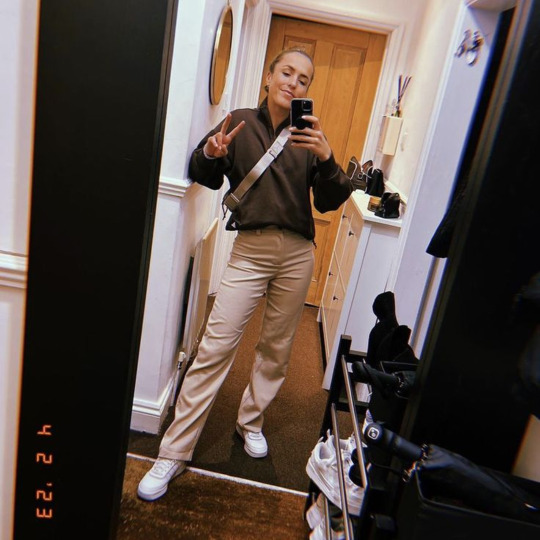
Request an appreciation post
#woso appreciation#woso#woso community#lia walti#lia wälti#wally#arsenal wfc#arsenal women#switzerland women#swiss wnt
70 notes
·
View notes
Text









Lia Wälti appreciation post on her birthday 🤍❤️
Lia Wälti Masterlist I image sources: pinterest I
#lia walti#lia wälti#lia walti x reader#lia walti imagine#woso#woso community#women's football#futfem#woso soccer#woso appreciation#arsenal wfc#arsenal#awfc#swiss wnt#woso imagine#leah williamson#steph catley#keira walsh#tobin heath#mariona caldentey#ana maria crnogorcevic#beth mead#alessia russo#victoria pelova#jen beattie#uwcl#arsenal women
99 notes
·
View notes
Text
Lia Wälti for Arsenal Appreciation
Request a player | with @alotofpockets
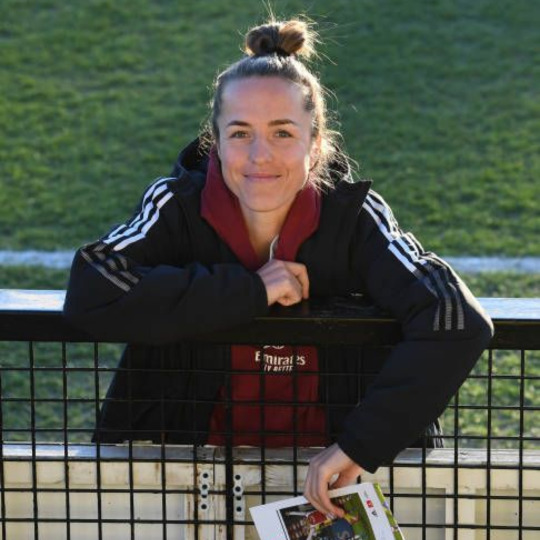



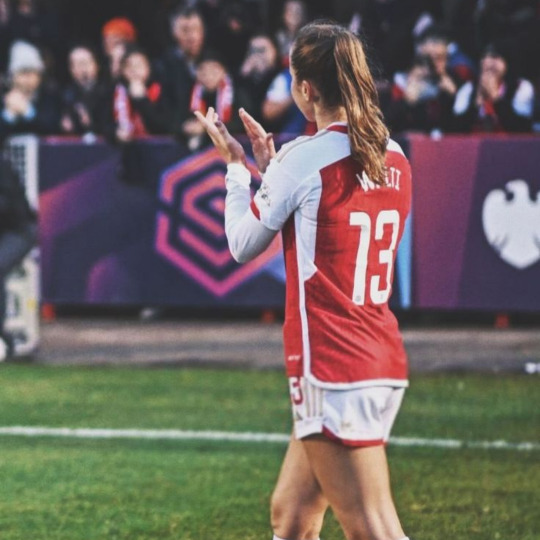




#woso#woso appreciation#woso community#lia walti#lia wälti#arsenal#arsenal women#arsenal wfc#swisswnt#swiss wnt#switzerland wnt#switzerland women
71 notes
·
View notes
Text

the arsenal family
#lia walti#frida maanum#suiwnt#norwnt#wwc 23#wwc 2023#world cup#woso community#woso#arsenal women#arsenal wfc#lia wälti#swiss wnt#noelle maritz
96 notes
·
View notes
Text
Every episode of Call the Midwife
Narrator: In Autumn, all souls feel the rot but the rot allows flowers to grow and spring will come again. The war absolutely hollowed out communities but also there was jam. Nonnatus house had nuns in it but they were cool nuns. As the weather turned, those in need were ever more vulnerable and we did what we could.
Trixie: I cannot fix this with rouge, Matthew *perky hair toss*
Sister Monica Joan: Aristotle had heard of glaucoma, why won't anybody listen to me, also I've sat on the swiss roll.
Sister Julienne: Nonnatus house may be repossessed/ demolished/ infested with weevils. Our future is uncertain, but damnit the women of Poplar need us.
The Irish One: I love coloured tights but also I've done the autoclave
Harrowing music begins as we watch an unwed teen mother/ man addicted to meth/ victim of some sort of domestic horror/ woman with pre-ecclampsia
Nurse Crane: There you go lass
Harrowing storyline is briefly featured again but also there's a pregnant dog in Nonnatus House.
Dr Turner: Let's give her Pethidine, also I'm progressive about (insert topical issue here)
Sister Julienne: Nonnatus House is a metaphor for the morals of this country and that's why we're going to the dogs
Random Nurse: Actually sister Julienne I think we should teach teenagers about contraception
Sister Monica Joan: We simply must have compline now
Compline and the harrowing storyline (which has now reached its apex through either a harrowing birth scene or some other medical procedure) are now interspersed in a way that is troublingly close to saying suffering is fine actually because Jesus.
Sheelagh: Oh Patrick
The harrowing storyline is now resolved, often with some more voiceover that references the vagaries of the turning world
Trixie: Matthew, I have solved it. And I have put on rouge. I can have it all except a consistent haircut.
Fred: The dog's had puppies, and this will save Nonnatus house.
Narrator: In the worst and dank places, in the creeping dread of the dark soil and the night loam, even as the rotting leaves seep in, there too is love and life. Also someone had a revelation. The end.
#trixie#Sheelagh Turner#call the midwife#period drama#putting the drama in period drama#sometimes compline will solve your ills#if your ills are not having compline#Dr Turner#sister Monica Joan#sister julienne#Matthew#who could say what his last name is#nurse crane#the lovely Irish one whose name I have never known#parody#but is it though
717 notes
·
View notes
Text
…ecosystem. But activists say this is just the tip of the Pfas iceberg One quiet Saturday night, Sandra Wiedemann was curled up on the sofa when a story broke on TV news: the water coming from her tap could be poisoning her. The 36-year-old, who is breastfeeding her six-month-old son Côme, lives in the quiet French commune of Buschwiller in Saint-Louis, near the Swiss city of Basel. Perched on a hill not far from the Swiss and German borders, it feels like a safe place to raise a child – spacious houses are surrounded by manicured gardens, framed by the wild Jura mountains. But as she watched the news, this safety felt threatened: Wiedemann and her family use tap water every day, for drinking, brushing her teeth, showering, cooking and washing vegetables. Now, she learned that chemicals she had never heard of were lurking in her body, on her skin, potentially harming her son. “I find it scary,” she says. “Even if we stop drinking it we will be exposed to it and we can’t really do anything.” The next morning she rushed to the supermarket expecting frantic Covid-style hoarding, but the aisles were calm – most people hadn’t seen the news. Three days later, a letter dropped through her door from the local authority. Drinking water was prohibited, it said, for children under two years old, pregnant or breastfeeding women and people with weak immune systems. The same letter was pushed through the letterbox of about 60,000 other people across 11 communes. The supermarket rush began. Saint-Louis is now the site of France’s biggest ever ban on drinking tap water. Its at-risk residents will rely on bottled water until at least the end of the year, when authorities hope water filter systems will be installed. Tests of the local tap water showed levels of Pfas – “forever chemicals” linked to cancer, immune dysfunction and reproductive issues – had reached four times the recommended limit. Shelves were stripped bare as families scrambled to stockpile bottles of water to protect loved ones. The source was a firefighting foam used at the airport since the 1960s, ending only in 2017, according to the joint statement from the local authority and regional health agency. Toxic residues from the foam lingered, filtering through the soil into drinking water and people’s bodies – probably over decades.
continue reading
42 notes
·
View notes
Text
by Michael Rubin
Hamas paraded three Israeli hostages before cameras prior to turning them over to the Red Cross on Feb. 8. The three were emaciated like concentration camp survivors. They may have been the lucky ones. Hamas meanwhile delays the release of a dual Russian-Israeli citizen due to his health. The hostages did not learn about the deaths of their loved ones on Oct. 7, 2023, until their release. Nor was the starvation of prisoners the only Holocaust parallel. Just as the Nazis did, Hamas executed special needs children and babies it had seized during its invasion of Israel.
Biden’s team recognized but would not lift a finger to rectify the ICRC’s Jewish exception, even though several of those hostages were Americans.
A core function of the International Committee of the Red Cross is to visit and monitor prisoners. Historically, the ICRC would visit Israeli prisons. After it neglected to visit Jewish hostages in Gaza, Israel suspended its access. That the Red Cross made a greater issue about such suspensions while Hamas tortured, abused, starved, and, in some cases, executed Jewish civilians in its custody suggests that the Red Cross considers the welfare of Jews to be an exception to its mission.
Less than two weeks after Hamas seized more than 200 men, women, and children, President Joe Biden said, “I asked Israel that the global community demand that the International Red Cross be able to visit hostages. I just demanded that the United States fully — a just demand that the United States fully supports.”
Yet, when Israel made the demand and Hamas rejected it, the White House continued channeling hundreds of millions of dollars in aid to ICRC. The message was clear: Biden’s team recognized but would not lift a finger to rectify the ICRC’s Jewish exception, even though several of those hostages were Americans.
Had Biden withheld funding to the ICRC until the group visited all hostages, Mirjana Spoljaric, a Swiss diplomat who heads the group, may not have been so willing to throw Jews under the bus for the sake of the group’s good relations with Hamas. Instead, the group continues to allow Hamas to subject Jewish women to harassment and abuse upon their release. Moral clarity and backbones matter.
Alas, the ICRC’s willingness to sacrifice its mission upon its antipathy toward Jews is not a one-time occurrence. It took the ICRC headquarters more than 75 years to recognize Israel’s Magen David Adom’s chapter because of objections over its Jewish star. It had no trouble recognizing the Islamic Red Crescent, however.
Nor is the ICRC alone. The United Nations Relief and Works Agency effectively became an enabler of Hamas terrorism, if not a Hamas arm. Its employees participated in the Oct. 7, 2023, massacre. Its hospitals doubled as Hamas command posts. And released hostages said they were kept at times in UNRWA facilities. Yet, its commissioner-general Philippe Lazzarini, an ICRC leadership alum, deflects criticism and accountability. Instead, he seemingly embraces the ICRC’s Jewish exception.
ICRC rot runs deeper. Agnes Callamard, the secretary-general of Amnesty International, cited ICRC’s Israel denunciations to justify her own advocacy for Hamas.
Antisemitism remains the world’s oldest hatred, and Jews are the canary in the coal mine. Antisemitism’s victims are not just Jewish, however. The institutional antisemitism and embrace of a Jewish exception in international organizations such as the ICRC and the U.N. erode their moral standing.
Israeli Foreign Minister Eli Cohen was right when, in 2023, he said the Red Cross had “no right to exist” if it did not visit the hostages in Gaza. His only error was he did not go far enough. The moral bankruptcy not only of the ICRC but also of organizations ranging from UNRWA to the United Nations Educational, Scientific and Cultural Organization to the United Nations International Children’s Emergency Fund raises questions about whether it is time to cull them.
83 notes
·
View notes
Text
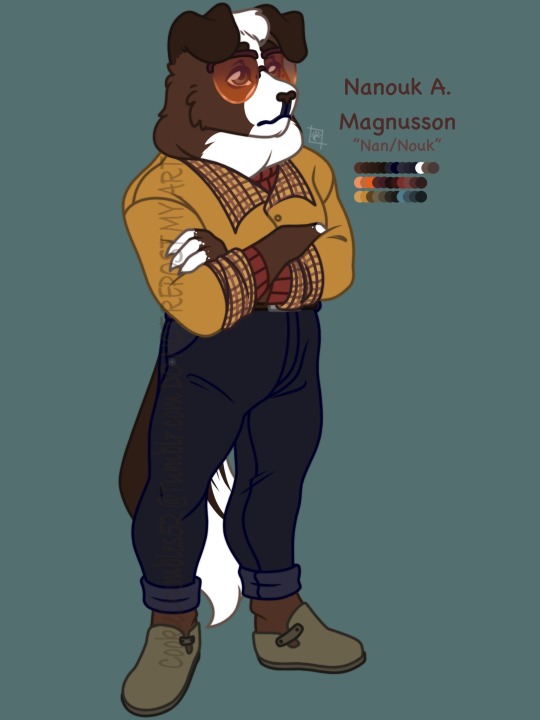
[ DO NOT REPOST, ALL ART & CONCEPTS WERE MADE BY ME ]
Nanouk Alexander Magnusson
Species: St. Bernard / Burnese Mountain Dog Mix
Accent: Scottish (Born & Raised — Swiss Blood)
Role:
Former Agent of the International Bureau of Defense, Atlas (Undercover Department, Medic)
Body Guard (Hired by Prof. Kelp to protect Y.N. & Fale Palace)
Resident Sweetheart (cough cough—husband—cough cough)
Relations:
Eden & Anders (Mother & Father)
Y.N. & Fale (Childhood Friends)
Sean (Best Mate / Army Friends)
Mallory, Casey, Annie (Old Army Friends)
Cardimon Gupata (Former Boss)
Saídê of the Palace (Mentor, Father Figure)
Personality:
The biggest teddy bear you ever did see! — Aside from Barnacles that is.
He’s got the same problem of “too big, looks mean” when he really just has a resting face that cuts through all the bull.
Genuinely the gentlest of creatures to ever exist
(My husbandddd)
The most gentlemanly gentleman who’s ever gentlemaned!!!
Translation: He’d treat you right! 👏👏👏
He’s very calculated in what he does, but very quick about those calculations.
He’s used to the pace of a field medic. On his toes at all times.
Sometimes that makes him seem a little anxious.
He just wants to fix things immediately, but has to remind himself that he’s not in the army anymore and most issues are pretty low key.
However he’s always prepared bro. This man has Mary Poppins’ bag in his back pocket.
The Sherlock of the medical field.
You don’t look well and you won’t tell me what’s wrong . . . So either I have to force you to tell me or spend twenty hours researching how to help you.
Would dedicate all the time just to make sure that your “symptoms” aren’t just habits of your species.
“I’m Nanouk, I help any creature who’s hurt or sick—who wrote this?”
(Pfftttt)
Huge bookworm. Loves anything with history in it, dabbles in a bit of everything. Romance, Fantasy, Thriller, you name it I’m sure he’s at least heard of it.
Loves his nature walks.
Likes to journal, especially while he’s out and about.
He really is the kind of man who would press flowers/leaves into a book and then draw something BEAUTIFUL beside it.
Has a whole shelf just for his journals.
He’s never written stories but I don’t think he’s mind trying it out. He’s more of a poems guy. (All the power to him cause I sure can’t write them)
A man of culture!
A man who would read/recite Jane Austen like it was the Bible.
A man who advocates for women’s rights without “sacrificing” his masculinity!!!
Cares deeply for his friends and family. He’s a community man, grew up in a place where the “village” was his safe place. He’d do anything for them.
(That includes the Palace Clan)
He’s such a sweetheart — people really underestimate how willing he is to protect the people he loves.
Maybe he doesn’t understand your joke but he’ll at least give it a chuckle.
He’s too nice to tell you that he doesn’t get it, or it isn’t funny.
I believe my boss described him as: “Y’know those trees that live for thousands of years, like they’re massive? — This man is a lumberjack, like you have to climbthose branches!”
(I’m crying bro X,D)
Aloof? Mysterious?~ Nah, he just doesn’t have much to say.
He’ll tell you if you just ask, but most people are too afraid to talk to him so he doesn’t bother.
Again, his “grumpy” face really is just his resting face. Like you’ll know if he’s upset, but it usually takes time to get him really riled up. (And he’s pretty good at hiding his facial expressions)
Please don’t lol, he might be a medic but just like Peso, he’d rock your world if you messed with him the wrong way.
Stay safe out there friends and don’t mess with gentle giants. You may not survive (lol)

@calamaroo (IT’S NANNNNN—IT’S NANOUKKK)
@the-albaon-things / @presentmacandcheese (>:3)
Digital Illustration Time: 4hrs 26min
[ This is a Octonauts AU, in no way is this canon to the OG storyline. ]
#octonauts#octonauts fanart#octonauts story#octonauts above and beyond#octonauts the asa#octonauts oc#digital fanart#my husbando#husbando#my husband <3
39 notes
·
View notes
Text
all yours | leah williamson x reader x lia wälti
when r finds out that their two bestfriends (and secret crushes) have gotten together on a trip they go into a meltdown of feeling left out and unloved - lw2 sort them out and show them just how loved they are by the two of them
just fluff, angst, confessions of love, lack of taking care of themselves and zero editing or proof reading because it’s 1am rn and i have to be at school at 8 ☠️
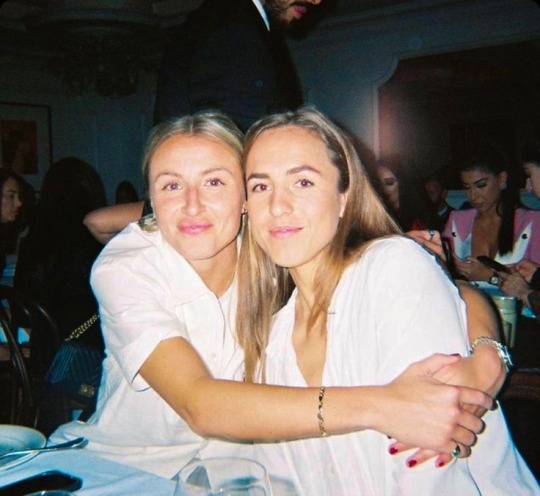
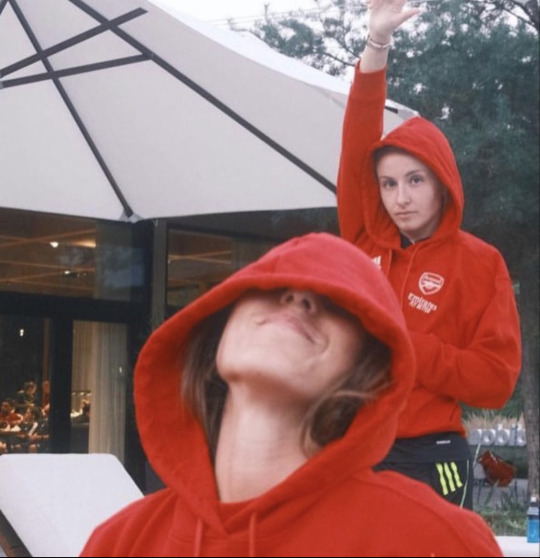
Lia and Leah. The indomitable couple, that had very quickly become the talk of the soccer community. They were a power couple, the swiss and english captain surprising the whole women's football community when announcing their relationship. You were happy for them, the two women were your best friends in the whole world, so when the photos from their recent trip during a international break to Ibiza had popped up you should have been ecstatic, but for some reason you couldn’t help but feel a pang of something else.
The two women were your best friends in the entire world, but you also harboured feelings for both of the women, and now that they were romantically involved you couldn’t help but feel a little bit gutted at the idea that when they returned to Arsenal for the season it would be the two of them together as a couple, and not the three of you as best friends. You were obviously happy for them, sending them a flurry of congratulations and expressions of your happiness about them getting together, but you couldn’t help the feeling in your gut that was almost making you jealous of what the two women had.
You spent the few days left of the break confined to your flat, in too much of a slump to go any further from your bed then to your home gym that was in your spare bedroom.
When the break ended you forced yourself to gather up the guts to return to the Arsenal training ground, pulling together every part of you just to make it to training. When you walked into the change rooms they were already full of your teammates, all of them in various states of undress and engaging in a series of activities. Leah and Lia were the first people to recognise your presence, calling out for you to come and sit with them over near Leah’s cubby, but you ignored them, walking straight towards your own. You didn’t even make it to the locker though before Katie was sliding down on the bench directly in front of you, stopping you from slinging your kit bag into your cubby.
“What’s got you down today, y/l/n?”
Her voice was so playful, everything that you normally loved about the woman, but today you had no tolerance. You’d hardly slept, you’d been too tired to make your morning coffee or breakfast so you were an uncaffeinated grump.
You shoved Katie out of the way, with a quick push, moving her far enough out of your way that you were able to slide your bag into the cubby and begin to strip off your tracksuit and hoodie so you could throw on your training gear.
“Wow, someone woke up on the wrong side of the bed, or was it somebody else's bed?”
It was in Katie’s nature to be annoying, she was one of your best friends, an older sister to you in a lot of ways and normally you had quite a lot of tolerance for her prodding, but today your sleep deprived form wasn’t having any of it.
“Fuck off Katie.”
Your voice was cutthroat, as you tugged your Arsenal hoodie over your head and replaced it with your training kit. You then followed with toeing off the runners you had on and sliding your track pants down your legs, letting them pool at your ankle before stepping out of them and throwing them into your cubby.
“Ooh, she’s fiery today, you can tell me darl, who’s the lucky lady or lass?”
You rolled your eyes, biting down on your tongue to stop you from saying anything seriously offensive to the older woman, for your own safety.
You pulled your training shorts up and then sat down on the bench, pulling your socks and cleats out of your bag.
“Not that it’s any of your fucking business, but nobody, so go fuck with somebody else because you are getting jack out of me this morning, fuck off.”
It was a lot of expletives, something unusual for you. You didn’t like to swear, in fact off the pitch you rarely swore, but today you felt so on edge, so out of place. There were tears brimming behind your eyes, tears that would never fall but burned your eyes all the same. Katie looked like she was going to say something else but Kim became your saving grace, getting in between the two of you and tugging Katie over to her own cubby, leaving you on your own.
You made quick work of your socks and cleats, slipping them easily over your feet, the part you struggled with was your laces, your hands shaking too badly to even get a grip on the fine pieces of polyester. It was embarrassingly humbling, your brain very quickly becoming aggravated at your inability to complete the one basic task. You glared down at your laces, ready to curse them out as well when your hands were grabbed by someone else's. You froze immediately, looking up to locate the source of the hands that were binding your hands from continuing to fail at the task they had.
You frowned a little bit at Viv. Aware, that the older woman probably wasn’t exactly happy with your treatment of your teammate. She didn’t say anything though, didn’t reprimand you, just pushed your hands up to rest on the bench and began the task of tying up your laces.
“What’s up?”
Viv’s words were hushed, so nobody else in the locker room could hear them beside you. Her words were soft, genuine, caring.
“Nothing, I’m fine.”
Viv rolled her eyes, finishing your left foot and then moving onto tying up your right one.
“You aren’t very good at lying, jochie.”
Your jaw locked at Viv’s words, watching her finish your left boot, as soon as her hands had left your feet you shot up off the bench, pushing her away as well and marching to the change room door, making your way out towards the training ground before Viv had the opportunity to ask you about your feelings again.
You trained like shit. Your sleep deprivation and lack of energy clear in your actions, you were sloppy, inaccurate and overall just poor in performance. You were approached multiple times by both Leah and Lia, as well as Kim and Jonas, who all seemed a little bit shocked by the shell of a player you were on the field. Before the break you’d been on top of your game, you were unstoppable on the pitch, scoring goals and assists. Your training session hardly reflected that though, on the pitch you looked like a rookie, you were playing like a rookie. You avoided them all as much as you could, especially the couple.
By the end of training you were rushing off the pitch, getting changed as quickly as possible and then getting to your car in record time, avoiding anybody who got in your way.
The couple were extremely shocked by your behaviour, the two of them sharing glances throughout the whole of training and in the change rooms afterwards, the both of them equally perplexed by your behaviour. On the drive home they shared similar thoughts, the both of them were equally worried about you and equally confused about your behaviour.
The next few days only got worse for you. Your lack of sleep and nutrition were affecting you even more and none of the girls came anywhere near you in the locker rooms, having observed Katie, Viv and Beth all be on the flip side of your outbursts when the three of them tried to push you. It wasn’t pretty and you knew that you were getting very close to getting a proper dressing down from Kim, your days were becoming numbered and you knew that if you didn’t pick up your act you were going to get a serious sit down.
You just couldn’t find it in you to care, all you could think about was the two women that had a few weeks ago been your best friends in the entire world. They were everywhere, at training, at team dinner, at team movie night. Everywhere you went they were there, so you found solace in your house which was the only space you had to yourself. The two women had been texting you, calling you, even daring to show up to the door of your flat, spending ten minutes knocking on the door. It had been ten agonising minutes in which you’d buried yourself in your bedsheets, patiently awaiting the two women to lead. Your avoidance had been going reasonably well, you weren’t in their gym group so they didn’t really have an excuse to approach you then, your cubby was on the other side of the locker room and you actively avoided them in training sessions.
It was going as fine as fine could go, you totally weren’t crying yourself to sleep every night thinking of the two women, or scrolling through both of their feeds everyday and looking at the old pictures of you three from merely a few weeks ago. It was all going fine until they cornered you in the locker rooms after a particularly rough training session.
It shouldn’t have been a rough session, Katie had been put on you and she was a rough defender but you were faster and more agile, but not with your sleep deprivation and malnutrition. Every time you got the ball she came at you, laying tackles that you would normally walk off easily, but today it had all hurt more, all been so much rougher. The third tackle had you woozy and unable to walk in a straight line, so you’d been accompanied off the field onto the sidelines where you’d resided for the rest of training.
When training had finished you’d disappeared into the change rooms, hoping that you would be able to slip out before everybody else as you’d done for the last week of training.
Instead though, when you were just finishing getting changed you were cornered by the couple, Leah pinning you down to the bench with her hands so you were unable to get up.
“You’ve been avoiding us.”
You kept your eyes on your feet, unable to look at the soft eyes of the two women.
“I’ve just been busy.”
It was a white lie, one you were sure that the two women saw right through.
“No you haven’t, you’ve been avoiding us and neither of us can figure out why.”
Leah’s words felt like a hot iron against your brain, the words branding into your skull.
Lia’s hand fell to your chin, pulling it up from your feet so you were forced to look at the couple.
“I haven’t been avoiding you.”
Leah rolled her eyes at you, the blonde woman not even acknowledging your blatant lie.
“Yes you have, and now you're avoiding it, you haven’t talked to us since before the break and you’ve clearly not been looking after yourself, so what’s up, y/n/n?”
You bit your lip, trying your hardest to pull your eyes from Leah but her hold on your chin making it hard.
“Fuck off will you?”
It was the same aggression you’d been hiding behind all week, the same aggression you’d been using to push everyone else out. It was malicious, cut throat, everything the two women knew you weren’t. You were hiding behind it as a coping mechanism, and they knew it. So whilst it worked at pushing the rest of your teammates out, it did nothing but make them more concerned about you, their hearts clenching at the way your muscles tensed against Leah’s hand and the way your face thrashed against her grip, she didn’t let go though, to scared that if she let go they’d never be able to get you back again.
“You know that I won’t sweet, we care about you too much, so what’s up, tell me, you know you can trust me.”
You shook your head against her hand, burning tears pooling in the corners of your eyes, tears that you refused to let fall, you were on emotional lock down, too scared to let a single one fall, because you knew that if you did it would just end up worse.
“Fuck off, fuck off, fuck off.”
Your words were murmured like a ritual, like a reminder to your brain that you needed to push them out, you needed to push them out so they could stay pushed out of your brain.
“Pushing us out isn’t going to work, bunny.”
Lia’s voice was softer in comparison to Leah’s, attempting to coax you into some kind of comfortable submission that would ice out the anger leaking from your body. She was the water to Leah’s fire.
“I’m fine.”
Leah rolled her eyes.
“I find that hard to believe,” Leah frowned at the little tinge of something roll across your face and her confrontation, “The bags under your eyes tell me that you haven’t slept properly in at least the last week, you’ve lost weight and you were so dizzy early that you looked like you hadn’t drunk water in a month, so you aren’t fine and your hiding it, which means your even less fine, so I’ll ask you once again what’s up?”
You finally managed to free your chin of Leah’s grip, standing up quickly from the bench and almost managed to slip past the two women but one of Lia’s muscular arms managed to catch you around the waist, securely bringing you to her side, holding you down against it.
“Not so fast liebling, Lee asked you a question and you are going to answer it.”
“Nothing’s up.”
It was clear that neither of the women believed you.
“Rightyo then, you’re coming home with us, Jonas’ orders.”
You frowned deeply again.
“No, I don’t have to go home with you, I have my own home, I am a fucking adult I don’t need you two babysitting me.”
You watched as Leah frowned steadily at you, picking up your bag and her own before nodding at Lia who began to tug you along behind them.
“If you want to play this weekend then you will come home with us, you’ve clearly not been taking care of your own health and until you do, you need supervision, call it babysitting if you’d like, I’d call it hanging out with your best friends but whatever works for you.”
You cowered slightly at the passive aggressive tone that Leah used towards you, her voice cutting deeply into your brain, leaving a deep enough impression for you to get the message that this decision had been made for you and you didn’t have a say in what was happening. So you let them lead you to Leah’s car, let Lia buckle you into the backseat and then slide in beside you and didn’t object as Leah started to drive you back towards her house.
Most of your nights and weekends had been spent at Leah’s house, a few weeks ago you two had been inseparable, you’d grown up together, the two of you inseparable Milton Keynes girls. When you’d moved away from home you’d been each other's first roommates, you’d always wanted more but you’d been too afraid to compromise your friendship. Then somewhere along your careers Lia had entered your friendship and the three of you had very quickly become inseparable. There had always been tension between the three of you, drunken kisses shared between all of you, handsy exchanges that you’d always pawned off on the two other women just being touchy. Apparently though they had been more than just touchy for each other, and you couldn’t help but feel a little bit left out, like they were experiencing a whole other level of your relationship that only the two of them would feel.
When you’d pulled up to Leah’s flat you’d felt a part of your stomach drop, the anxiety of having to be in a house with the two women setting in and making you feel sick. Lia’s hand had found it’s way to your knee cap, squeezing it slightly. When Leah parked her car the two of them exited the vehicle, Lia apparently being tasked with carrying all of your bags and Leah being tasked with getting you inside.
She’d walked around to your side of the car, unstrapping your seatbelt and pulling you up out of your seat by pulling you up by your armpits. You went limp against her, all of the emotions, all of the angry shields, all of the fakeness and disregard for your general health making you well and truly spent, your body had identified you were no longer in danger, no longer in a space where you had to put up shields and it had come to the conclusion that you now no longer had to do that. So you let Leah man handle you up the stairs, let her tug your shoes off at the door and drag you across her floorboards, until she managed to get to her couch and sit the both of you down on it.
She sat herself down first, getting herself situated on the lounge before laying you down in between her legs, so your head was resting steadily against her chest. Your body still in its mellowed out state, your brain floating in a sort of haze that you couldn’t even begin to comprehend. Eventually Lia rejoined the two of you, freshly showered and dressed. She came bearing three cups of hot cocoa and slotted herself in between Leah’s legs and my own, criss crossing on top of my feet. The pressure felt good, relaxing, and calming. Lia passed me one of the ups and I took a tentative sip, the feeling of the warm chocolate slipping down my throat, nothing besides complete divinity.
“So, what’s really up, hm?”
Lia’s voice was as soft as silk, gliding through the room and falling gently upon your ears.
“Nothing’s up.”
Your voice was gruff in comparison, nothing close to anything that was happening in this room, your tone felt out of place, just like you felt in between the two. Like you were an unfit jigsaw piece.
“Honey, I don’t know why you feel like you need to lie to us, but you don’t, whatever it is we can sort it out, you know that we’d never judge you right?”
Lia’s words were so soft, so smooth, so calming and yet they did absolutely nothing to calm the feelings inside your soul, the feelings of complete yearning for the two women that now seemed completely forbidden.
“It’s stupid.”
You felt Leah’s head lean over your own, looking down at you from her place from above you, one of her eyebrows raised in questioning.
“Nothing you feel is stupid, bunny.”
The nickname bunny came from when you and Leah were kids. You’d been a fluff ball as a kid, a fluffy ball of blonde hair that had somehow ended up with Leah nicknaming you bunny. It had somehow stuck throughout your teenage years and your years at Arsenal, as much as it riled you up.
“I don’t want to talk about it.”
You felt like a kid, with the two women looking down at you as if you were their child.
“Too bad, we are. Whatever it is has clearly taken a massive toll on your health and wellbeing and we can’t have that. It helps to talk, so talk to us, talk to us like you did a few weeks ago.”
You pushed yourself out of Leah’s arms, standing up in her living room and beginning to pace in front of the two women, your heels digging into the material of the carpet.
“You want to know what’s up? You two go to Ibiza for a week, a trip I would have gone on if I didn’t have family commitments. You come back and the two of you are fucking dating, you didn’t tell my anything, I didn’t even get a fucking phone call to say, guess what your two bestfriends have gotten together. It’s messing with my head, because we were all touchy and handsy, we all made out with eachother and I pawned it off as the three of us just being close, but turns out it wa just the two of you and I’m a fucking third wheel and now I just feel like you’re tugging me along because you feel bad for me, not because you actually give two shits about our friendship.”
Leah’s arms stopped you from pacing, making you realise that tears were now slowly dipping down your face at a steady rate. Leah tugged you back down into her arms, wrapping them both around you to secure you to her chest.
“Bunny, bunny, take deep breaths for me, it’s okay.”
You shook your head against her body, thrashing and pushing against her grip but she refused to let you go, not when she now knew how much she’d hurt you now.
“It’s not fine, it’s not fine, you two love each other and I love you both but you don’t love me, you don’t want me, not how I want either of you, not how I feel for either of you.”
You felt Leah take a deep breath from behind you, her own tears nor brimming in the back of her eyes, now beginning to feel the true depth of her and Lia’s actions.
“Bunny, we both love you so much, more than you would ever know and I’m so sorry you’ve felt this way, I’m so sorry that we never communicated anything with you. Me and Lia, we love you, we’ve always loved you, hell I’ve loved you since we were 5. The last few years, we’ve been trying so fucking hard to get you to realise, to get you to understand the magnitude of how much we love you. But you never did, the drunken kisses, the secret glances and touches, we thought it was all platonic for you and after a while, the two of us began to think that we were waiting for nothing, so in Ibiza we bit the bullet, we decided that we couldn’t wait around for a person who didn’t reciprocate our feelings. I am so sorry we never saw it, I’m so sorry that neither of us were confident enough to just ask you the question, but we’re going to work it out now, we’re going to make it all work out, I promise you.”
Your body relaxed fully against Leah’s, all the fight disappearing as Leah’s words sunk into your skin, stretching across your skin like a layer of silk.
Lia clambered her way up the sofa, squishing you between Leah and herself and pressing a gentle kiss to your forehead.
“Liebling, it’s going to be okay, we’re going to sort this out, and Leah and I, we are going to spend every day making it up to you, everyday proving just how loved you are, ich verspreche.”
Everything fell into place for you, maybe everything wasn’t perfect right now, maybe there was still a lot of things the three of you had to work out, but you didn’t feel out of place anymore between the two women, you felt perfectly in place, like your jigsaw piece had finally feel into place.
#woso#woso community#leah williamson#arsenal wfc#lionesses#marry me rn#lia walti#leah williamson is mother#leah williamson is mom#leah williamson is boyf#golden retriever leah vibes#i love leah williamson#leah williamson x reader#leah williamson imagine#leah williamson x reader x lia wälti#lia wälti#lia wälti imagine#lia wälti x reader
787 notes
·
View notes
Text
I just want to warn this is going to be a VERY ANGRY rant.
Trigger warning for those disturbed by seeing children in distress but....I saw this, this morning:

The moment I saw this I had to leave my computer and go for a small walk because it infuriated me. These are kids no younger than TWELVE being FUCKING ZIPTIED AND IN COURT.
ZIPTIED.
If you still support this regime, you're a dogshit person and if hell is real YOU'RE GOING TO IT. Unfollow me and block me. There is NO such thing as a good Trump supporter. (Not that there ever was anyways)
This is the time where we REALLY need to fight back. I posted a vid that I was involved in assisting people stand up to these fascist pigs and we MUST CONTINUE fighting fire and fire and it warms my heart seeing communities step up and protect these people because these are fucking CHILDREN. IN COURT LIKE A FUCKING CRIMINAL. Yet you have some South African Drug Addict (Elon Musk and it's LITERALLY BEEN REVEALED he's on drugs) going in and FUCKING the government. EVERYONE NEEDS TO BE OUT IN THE STREETS WITH ME FIGHTING BACK AGAINST THESE FASCIST THUGS!
And before anyone says, "They'll declare Martial law!" I have a story to sell you, THEY'RE GONNA DO MARTIAL LAW ANYWAYS WHETHER WE FIGHT BACK OR GIVE UP. Personally I believe it's better to fight back while we still have SOME RIGHTS LEFT RATHER THAN NONE AT ALL.
The so called Waste, Fraud and Abuse? Use it on the MILITARY WHICH HAS BEEN AUDITED SEVEN TIMES.
If ICE cared so much about "criminals" go after the ACTUAL GANG MEMBERS? Oh right because they're pussy ass bitches like their orange dear leader. For all you ICE fuckers, you covering your faces does NOT make you badass just like harassing WOMEN AND CHILDREN which is ALL the vids I've seen, it makes you WEAK, SPINLESS, PUSSIFIED BITCHES. Again like your orange dear leader.
Go after ACTUAL CRIMINALS you pussies. Oh you won't because they'll turn you into swiss cheese.
And for you MAGAt bible thumpers, how can you support this but claim to care about children? Because you NEVER did. You just want to control women because you're all a bunch of mediocre white men with sad shitty lives upset that minorities and women have surpassed you.
I'm just so fucking mad right now.
Yeah let's gut Meals on Wheels, JOBCORPS, Social Security, Medicare and Medicaid and give THESE ASSHOLES A HUGE BUDGET.
FUCK ICE. ABOLISH ICE.
P.S: It would NOT surpass me if the Orange Pedophile was trafficking these children in a sex ring. Why? He's good buddies with Jeffrey Epstein. Someone should zip tie Elon Musk and put him in that fucking CECOT Concentration Camp.
And I also saw that Bukele asshole saying 47 should imprison and impeach "Activist judges" like he did. Mother fucker, your country is the POOREST in Latin America. Go fix your corruption and your country before sticking your nose in ours you fake tough guy, gang conspiring piece of shit.
#anti ice#fuck ice#fuck donald trump#anti donald trump#anti trump#fuck trump#fuck maga#anti maga#anti republican#fuck republicans#fuck republikkkans#us politics#politics#the party for children right?? FUCK OFF
26 notes
·
View notes
Note
Hey just so you know, banning porn isn't a bad thing, it can fix so much. Cause btw! Child porn has been put into it, there's also porn about incest! Which is not good, but hey, you'd probably like it either way since you enjoyed making fauxcest art!
Which if you want a rerun on what that is since you act like it is not bad,
"Fauxcest refers to pornographic or erotic depictions of incest by actors who are merely pretending to be related but in actuality have no biological relation."
Yes, as it says, ARE NOT RELATED BIOLOGICALLY.. But it is still BAD cause it's about FANTASIZING OF BEING BLOOD RELATED.
And don't try to bring up the whole "brother is a term in religious spaces!" Cause I am NOT talking about that.
Also why do you bring in the LGBTQIA+ community, women, and colored people into the conversation against anti-incest when none of that is even part of any of those. It is the PEOPLE just fucking say ITS THE PERSON.
And nothing about it screams politics. Delusional asshole.
ALSO! ALSO! just want you to know, skinny bodies are not a toxic beauty standard!! Stop giving them hate and only giving love to the chubby & fat people!!
And btw, swiss is not fat. Maybe try looking at pictures of him again. Aether (and chris) is not fat either, he is chubby, it's called a beer belly. If you ever showed that to the man himself (chris) he would not appreciate that lmaoo, he has stated so himself.
And don't say "it's always the skinny people complaining" because I am NOT skinny. And I am merely here spitting FACTS into your face.
Another thing I would like to mention is trans people, there is no reason to be only giving attention to trans people who only ever "fully transitioned"
Cause that is not what it is all about. It is an identity. And if I have to remind you about what that is, transgender is about someone wanting, feeling, seeing themselves as being the opposite of what they were born as.
It is NOT about them fully transitioning or half transitioning at all! Transitioning is a choice they make! Someone being born as a girl, seeing themselves more so as a boy IS AN IDENTITY. it is WHO THEY ARE.
Someone being born as a boy, seeing themselves more so as a girl, IS WHO THEY ARE.
If they want a half transition or full transition, THAT'S THEIR CHOICE!!
Hi! Not reading all that. I've sold fauxcest for 9 years and dont fucking care what this says. Find some self respect and some respect for others? Idk what the other shit ur talking about here is. Get a life
12 notes
·
View notes
Text


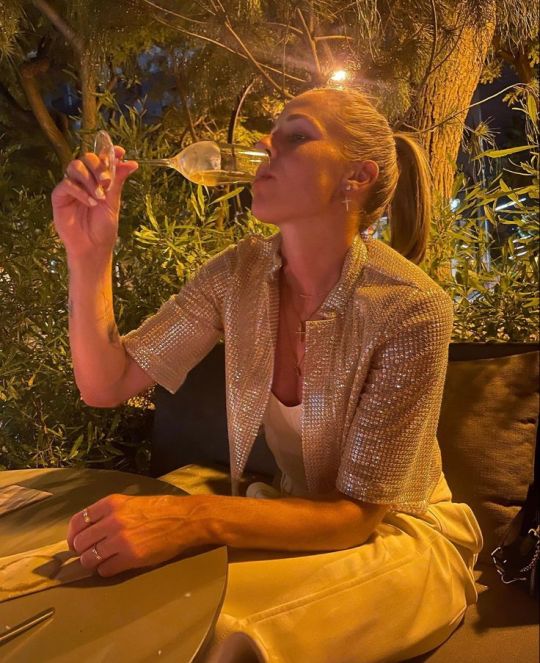






✨Happy 34th birthday to Swiss and Seattle Reign's Ana Maria Crnogorčević !✨
#woso#woso community#woso appreciation#ana maria crnogorcevic imagine#ana maria crnogorcevic x reader#ana maria crnogorcevic#barca femeni#seattle reign#swiss wnt#woso soccer#nwsl#futfem#womens football
85 notes
·
View notes
Text
Lia Wälti for Switzerland Appreciation
Request a player | with @alotofpockets









#woso#woso appreciation#woso community#lia wälti#lia walti#wally#arsenal wfc#arsenal women#arsenal#switzerland wnt#swisswnt#swiss wnt#switzerland women
45 notes
·
View notes
Text

Welcome back to our vibrant space, where empowerment and elegance meet. The Black Feminine Society is more than just a blog; it’s a sisterhood where black women celebrate their feminine energy, share wisdom, and commit to genuine growth within our community. Today, we're diving into the essentials that every classy girl should have in her wardrobe. These items are not just accessories and garments; they are statements of grace, confidence, and timeless style. So, let’s elevate our wardrobes together with these must-haves:
CLASSY GIRL MUST HAVES:
1. Black Sunnies
A pair of black sunglasses is the ultimate accessory for any classy lady. Not only do they protect your eyes from the sun, but they also add a touch of mystery and sophistication to any outfit. Whether you’re running errands or attending a high-profile event, black sunnies will keep you looking cool and composed.
2. Pearl Choker or Necklaces
Pearls have long been a symbol of elegance and purity. A pearl choker or necklace adds a soft, feminine touch to both casual and formal outfits. If you missed our “Let’s Talk: Pearls” guide, we highly recommend checking it out on the blog for tips on selecting and styling these timeless pieces.
3. Gold or Silver Chunky Small Hoop Earrings
Chunky hoop earrings, whether in gold or silver, are a staple in a classy girl's jewelry box. They're versatile enough to wear with a jeans and tee combo or a chic evening dress. These earrings frame the face beautifully, drawing attention to your radiant smile.
4. Button-Up Cardigans: Long, Cropped, and Vest Ones!
Cardigans are the Swiss Army knife of any wardrobe. A long cardigan can be wrapped around you on a chilly evening, while a cropped one pairs perfectly with high-waisted trousers or skirts. Vest cardigans are great for layering over summer dresses. The key is to have a variety to choose from for any occasion.
5. Dainty Bangles or a Watch
Accessories like dainty bangles or a classy watch can elevate your outfit instantly. They’re subtle yet powerful in adding a touch of glamour to your everyday look. Mix and match bangles for a boho chic vibe, or keep it sleek with a single, elegant watch.
6. Tailored Trousers
The importance of well-fitted trousers cannot be overstated. Tailored trousers not only enhance your silhouette but also make you feel more confident and put-together. Whether it’s for the office or a casual meet-up, a pair of tailored trousers is a versatile piece that can be styled in numerous ways.
7. Black Purse
A black purse is the finishing touch to any outfit. It’s practical, it matches with almost everything, and it exudes class. Whether you prefer a tote for daytime or a sleek clutch for evenings, a black purse is an essential accessory that you’ll reach for time and again.
These seven items are more than just pieces of clothing and accessories; they are a representation of our style, our grace, and our unapologetic presence in every room we enter.
Fashion is a way to express who we are without having to speak. It’s the fun part of your femininity journey, Let’s make every outfit count!
As we embrace these classy must-haves, let’s continue to support each other, share our stories, and strive for true growth in our community. Let’s level up, together. 💎
JOIN us on INSTAGRAM • TWITTER • FACEBOOK
#style tips#feminine outfits#classy black women#black women in luxury#black women in femininity#feminine energy#outfit inspo#femininity
44 notes
·
View notes
Note
One thing that I haven't really seen people touch on in regards to the situation with Jutty, is a racism angle. These accusations perpetuate the deeply harmful stereotype that black men cannot be trusted around white people who were afab. Since you are so level-headed about this entire situation, I wanted to bring this to you for comment.
I am white, so I feel that my comments are not going to carry all of the nuance necessary for this conversation.
However, I do think there are very dangerous stereotypes that fandoms can perpetuate about black men including positioning them as more physically and sexually aggressive.
And I've seen that to a degree even before all of this with interpretations of Swiss in general.
Of course, anyone can perpetuate harm... but I go back to what I said in my previous ask - you can't be reckless in your words and actions, especially if there is no solid evidence one way or another.
I can say that on many occasions in my life it has *only* been black men who have stood up for me when I was in danger around other boys and men, and this is important to note.
Stereotypes like this aren't actually based in truth, but in bias and an active desire to cause harm to a marginalized community. It's important that we combat them in everyday life.
It is reckless and dangerous to spread racist stereotypes in the wake of any accusation made against a man of color, because doing so has led to disproportionate consequences for them.
We have a deeply unfortunate history in the US of white women accusing black men of harm that has resulted in incarceration, abuses, and even murder and lynching.
So no matter what the truth is behind these accusations, fans cannot and should not evoke those racist stereotypes in their approach to this situation or any for that matter.
It. is. dangerous. This is especially dangerous when fandoms encourage physical harm towards people they think deserve it. Emboldened people will act on it, and this has happened... Many times.
3 notes
·
View notes
Text
REINE AUDU // HEROINE
“She was a French fruit seller, known for her participation in the French Revolution. She was counted as one of the Heroines of the revolution. On 5 October 1789 she, alongside Theroigne de Mericourt, led The Women's March on Versailles. At Versailles, she belonged to the delegation allowed an audience with the monarch to put forward their complaints. She led the march back to Paris with the royal court in triumph. Afterwards, however, she was imprisoned in Grand Châtelet and Conciergerie. She was freed 15 September 1791 by the efforts of the Cordeliers and Louis-Barthélemy Chenaux. On 10 August 1792, she participated in the storming of the Tuileries Palace. She fought personally with the soldiers of the Swiss guard. She was honoured with a sword by the Paris commune for her acts.”
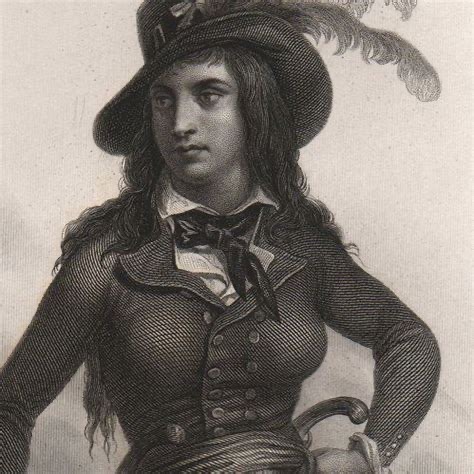

11 notes
·
View notes